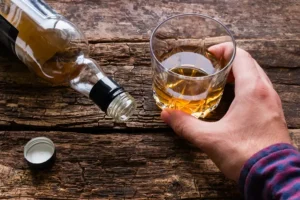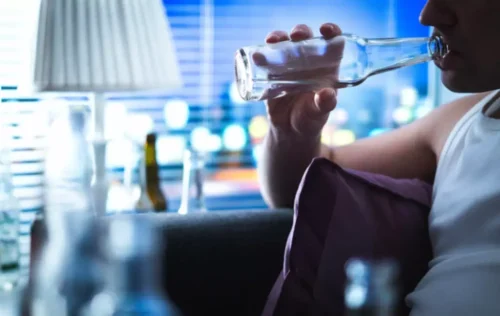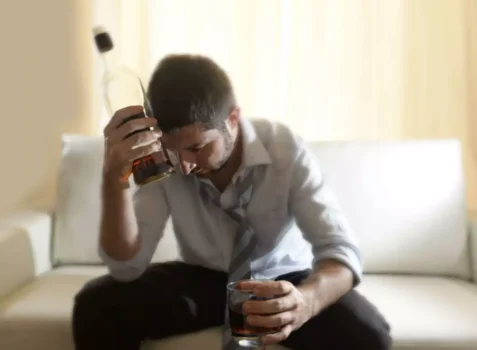Address
304 North Cardinal St.
Dorchester Center, MA 02124
Work Hours
Monday to Friday: 7AM - 7PM
Weekend: 10AM - 5PM
Address
304 North Cardinal St.
Dorchester Center, MA 02124
Work Hours
Monday to Friday: 7AM - 7PM
Weekend: 10AM - 5PM

It can also help you to be more tired, get to sleep and stay asleep a little bit longer, which also reduces cravings,” Czerwony explains. According to the American Heart Association, the average American adult eats somewhere between 22 and 30 teaspoons worth of added sugar in a day. Women and children should only be eating about 6 teaspoons (25 grams) of sugar a day; men’s intake should only be slightly higher, at 9 teaspoons (36 grams).
Individuals with these genetic variants experience unpleasant symptoms, including facial flushing, nausea, and increased heart rate, when consuming alcohol. Consequently, they are more likely to develop an aversion to alcohol, leading to a decreased risk of alcoholism. Research has examined the association between alcohol and sweet cravings among individuals in early recovery from Alcohol Use Disorder (AUD). A study utilizing ecological momentary assessment (EMA) data found a contemporaneous association between alcohol cravings and sweet cravings during this period.
Exercise releases endorphins, which can improve mood and reduce cravings for sugar. Exploring alternative stress-relief techniques such as meditation, yoga, or hobbies can also provide healthy outlets for emotions and reduce the reliance on sugar as a coping mechanism. In the context of sugar and addiction, sugar triggers dopamine release in a similar way to addictive drugs, making high-sugar foods more rewarding and pleasurable. This can be particularly tempting for people with a substance use disorder whose dopamine reward networks have been compromised by addiction. Moreover, “sweet-likers” who use sugar to cope in early recovery may experience an increased risk of alcohol craving either directly or through sugar consumption and/or craving.

Additionally, make sure to include sources of protein and healthy fats in your meals to promote satiety and overall well-being. Sugar also plays a role in alcoholism by aiding in the replenishment of the body’s glycogen stores. Eating sugary foods can help restore these stores, providing a quick energy boost and potentially improving mood [3]. Poor nutrition can lead to various mental and physical health issues, including weight gain, which can result in low mood and potentially trigger a relapse to alcohol. Studies show that individuals who are overweight may experience more severe depression, making them more susceptible to alcohol relapse.


The is the biggest reason why sugar cravings appear in early sobriety, especially the first month. If your feel like your sweet tooth is becoming a problem, physically or mentally, you’re not alone — and it’s not all in your head. For some of us, a few lifestyle changes will be enough to break our sugar addiction. Others will need medical intervention to overcome the chemical reactions fueling the craving. Whatever your situation, being kind to yourself and open with your healthcare provider can only help. Understanding the reasons behind sugar cravings in recovering alcoholics involves exploring various behavioral patterns that contribute to this phenomenon.
Sugar is also rewarding to the brain and is a quick fix, just like alcohol was. Now that we’re not using alcohol for instant gratification, our brain is seeking the next best thing, which in a lot of cases is sugar. Discover effective strategies to regain balance and nurture your mental wellbeing. Dive into the depths of addiction treatment, from therapies to factors influencing success. Discover the benefits of Acceptance and Commitment Therapy (ACT) for mental well-being. Enhance your psychological flexibility and reclaim your mental health.
Individuals with alcohol use disorders may experience increased dopamine release due to the effects of alcohol on the brain’s reward system. This can lead to cravings for other substances that stimulate the reward pathway, such as sugar. People with substance use disorders often experience intense cravings for sugar during their recovery journey. According to APN, the preference for sweet foods can be linked to addictive behaviors. There seems to be an underlying connection between these addictive behaviors and sugar intake, which can be traced back to how sugar affects the brain.
In other words, if it takes a pack of cigarettes and a pint of ice cream a day in order to not drink, do whatever it takes. “I’ll deal with the food issue later once I’m more stable in my sobriety.” It’s easy to overlook the dangers of sugar or overeating when you were a blackout drinker. Other factors in moderate drinkers’ lives may why do alcoholics crave sugar contribute to the positive outcomes [6]. Addiction treatment centers help by providing a safe space, professional treatment options, and long-lasting support for you to achieve abstinence. At All Points North Lodge, of clients benefit from individual and group therapy, medication-assisted treatment, and cutting-edge technology.
Over three-quarters of people in recovery experience sugar cravings after quitting drinking. That’s like if the entire population of Texas started eating dessert for dinner. But why does it happen, and more importantly, what’s the game plan to fight the sugar demons without reaching for the bottle? Let’s pull back the veil on this lesser-known aspect of sobriety, while laying down some strategies to help you steer clear of both booze and undesired candy conquests.